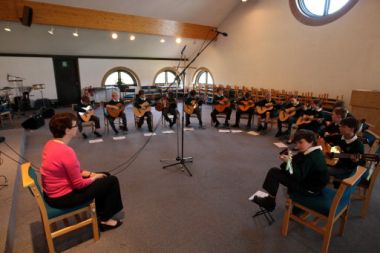Think-tank calls for more constructive debate around faith schools

The Theos think-tank has called for a more "constructive" debate about the benefit of faith schools.
In a new report, the think-tank argues that the issue of faith schools is being overloaded with wider debates about the place of religion in society.
"The existence of faith schools is controversial, in part, because the debate around faith schools serves as a proxy for other contentious issues," the report reads.
"Often the faith school debate is in fact about the role of religion in the public square.
"This manifests itself in the seemingly intractable tensions between the religious advocates of faith schools, for example, the Church of England and the Roman Catholic Church, and their secular opponents, such as, the British Humanist Association and the National Secular Society."
The report said there was little evidence to back up the claim of opponents that faith schools are socially divisive.
"Rather, they are as successful as community schools at reflecting the multicultural make-up of English communities and promoting cohesion," the report said.
However, it noted that giving schools complete control over their admissions could result in "a degree of socio-economic 'sorting'".
"For Christian schools in particular, there are strong reasons to reassess policies around pupil selection, to avoid what looks like a degree of indirect socio-economic sorting, especially given their historic ethic of concern for the poorest in society," the report said.
Schools with a religious character account for around a third of all state-maintained or non-fee paying schools
in England, with over 99% of these being Christian.
While there was a clear "faith school effect" visible in areas like academic performance, this became weaker when the profile of the school intake was taken into consideration.
The report recommends that those engaged in the debate "acknowledge the partiality and contested nature of many of the conclusions and seek to make conversations more constructive".
Faith school supporters are also encouraged to move away from justifications based on academic outcomes and instead "develop a stronger understanding and articulation of the value of an education in a school with a religious character, possibly in relation to ethos, a more holistic approach and development of character".











